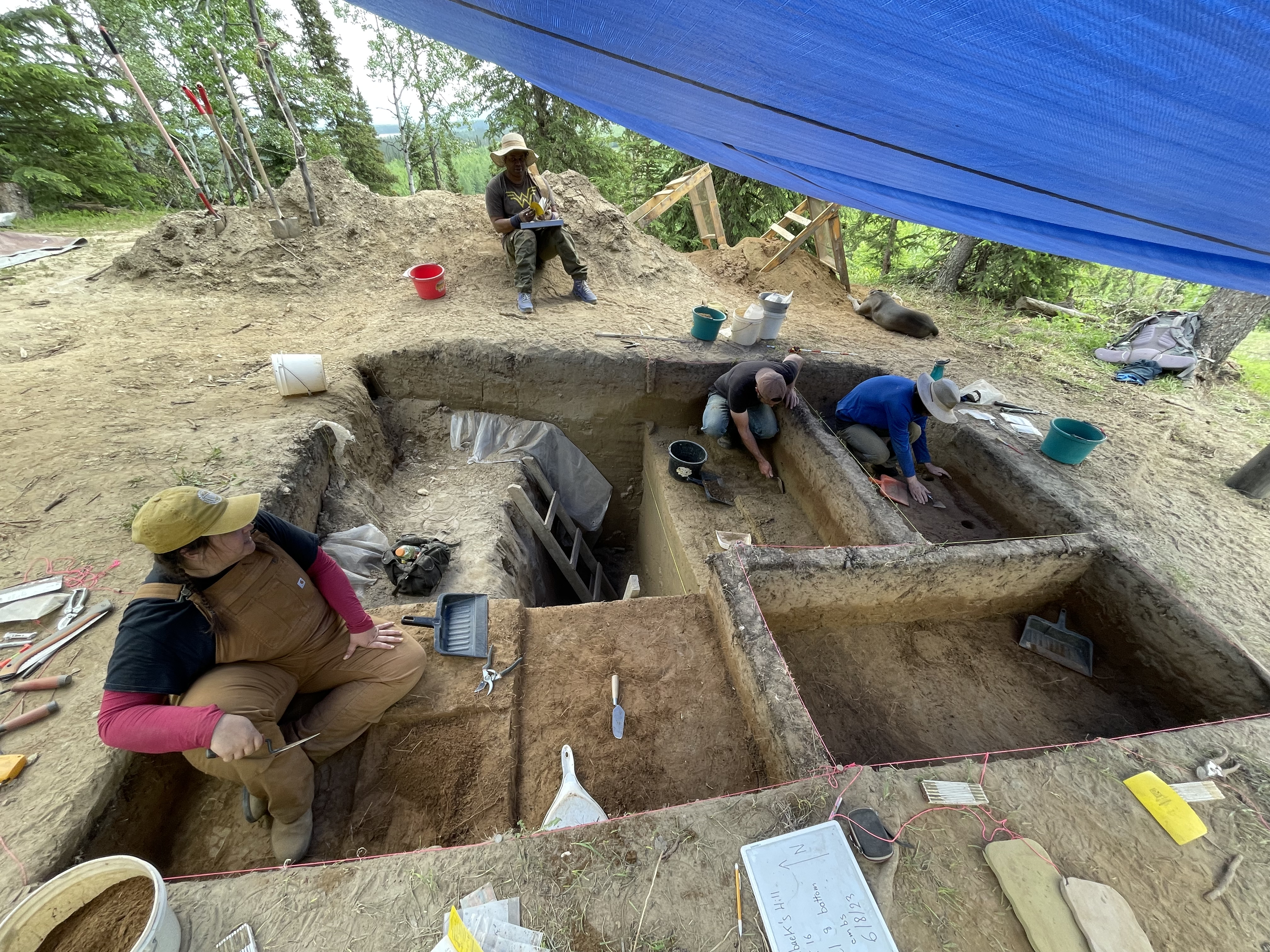Humanity’s longstanding friendship with dogs may be even deeper than previously realized. Archaeological remains of a well-loved hound in Alaska suggest that people in the Americas had a close relationship with canine companions at least 12,000 years ago, around 2,000 years earlier than physical evidence previously suggested.
Back in 2018, archaeologists unearthed a tibia, or lower-leg bone, of an adult canine at an archaeological site in Alaska called Swan Point, about 112 kilometers (70 miles) southeast of Fairbanks. Radiocarbon dating showed that the canine lived around 12,000 years ago.
Another excavation by the researchers in June 2023 discovered an 8,100-year-old canine jawbone at a nearby site called Hollembaek Hill, south of Delta Junction.
Further chemical analyses of both individuals’ bones revealed a surprising level of salmon proteins, indicating the animal had regularly eaten the fish. Since it’s unlikely the canines were hunting salmon from the region’s rivers at this time, it suggests they had been dependent on humans for food.
“This is the smoking gun because they’re not really going after salmon in the wild,” Ben Potter, study co-author and archaeologist with the University of Alaska Fairbanks, said in a statement.

Researchers unearthed the jawbone at a site called Hollembaek Hill, south of Delta Junction, a region where archaeologists have long done research in partnership with local tribes.
Image credit: Joshua Reuther
Previous genetic evidence has suggested that dogs rapidly dispersed across America beginning around 15,000 years ago, suggesting they were brought across with some of the first people to migrate from Eurasia. However, the physical remains of prehistoric canids are sparse in the Americas.
“We now have evidence that canids and people had close relationships earlier than we knew they did in the Americas,” added lead study author François Lanoë, an assistant research professor of anthropology at the University of Arizona.
“Until you find those animals in archaeological sites, we can speculate about it, but it’s hard to prove one way or another. So, this is a significant contribution,” said Lanoë.
Notice that we’re saying canids, not dogs. The animals identified in the study were not like the chihuahua or French bulldogs of today, nor even a modern-day Siberian husky. The researchers identified 76 canids found across Alaska and identified dogs (C. familiaris), as well as ancient wolves (C. lupus), wolfdogs (C. lupus/familiaris), and coyotes (C. latrans). Some of the canids that accompanied early Americans may have been essentially domesticated wolves, while others were a genetic medley of different canid species, unlike anything that exists today.
“Behaviorally, they seem to be like dogs, as they ate salmon provided by people, but genetically, they’re not related to anything we know,” explained Lanoë.
This is important as it shows the domestication of dogs was not a one-off, straightforward task that happened overnight. Like the advent of any species, it was a complex process, full of back-and-forths, interbreeding, and dead ends. At some point along this muddled journey, something that we could consider a “dog” appeared, but it’s impossible to find the decisive moment.
“It asks the existential question,” Potter pondered, “what is a dog?”
The new study is published in the journal Science Advances.
Source Link: Ancient Americans And Dogs Became Best Buddies 2,000 Years Earlier Than Thought